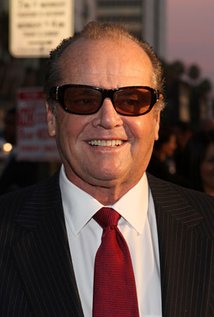Born to Be Blue (2016)


Content by Tony Macklin. Originally published on December 5, 2016 @ tonymacklin.net.
Born to be Blue is a bolt from the blue.
It's soulful and shattering.
And it has one of the best performances of the year.
Born to be Blue is based mainly on a two-year period in the life of jazz trumpet player Chet Baker, when he was trying to cope with his drug addiction and a savage beating which had destroyed his career.
What makes Born to be Blue a special film is the phenomenal performance of Ethan Hawke as the addled, wounded Baker. Hawke captures the fragility, vulnerability, and moody insecurity of the renowned trumpet player, but he also expresses the indomitable will of an artist seeking to regain his artistry.
With perplexed frowns, boyish smiles, wistful and melancholy looks, with moments of humor, and eager to please, Hawke's Chet Baker is at times guileless, at other times duplicitous. He is the self-destructive artist par excellence.
This year Casey Affleck is the favorite for the Best Actor Oscar for Manchester by the Sea, but his performance doesn't have the range or challenge of Hawke. Unfortunately Born to be Blue had a limited theatrical run, and quickly was discarded into cyberspace, so it seems very few people will see this staggering performance.
The film begins in 1966 in Lucco, Italy, with Baker having a hallucination in an Italian jail. A movie producer bails him out. The film, now in black and white, jumps back to 1954 and Baker's debut at Birdland in New York City, with Miles Davis (Kedar Brown) and Dizzy Gillespie (Kevin Hanchard) in attendance. Miles saw Chet as a pale interloper from the west coast. He obviously does not think he is his equal. He says, "Come back once you've lived a little."
Later in the film he does return. He says to his producer Dick Bock (Callum Keith Rennie), "I've lived a little." And he comes back to New York.
After the experience at Birdland in 1954, the film shows a scene where his wife finds Chet lying with another woman in a room having just taken heroin. She throws him out. We discover that it is a scene from a movie they're shooting with Chet Baker about his life. We're back in the mid-1960s.
We should realize at this point that the director and screenwriter Canadian Robert Budreau is taking liberties with time and truth.
2016 is a year of reimagining in films about actual people. They mix in fiction with fact. Director Pablo Larrain has two films this year that are reimaginings. They add and change dialogue, events, and characters in the films Jackie and Neruda - films about Jackie Kennedy and Pablo Neruda.
In politics in 2016, fiction overwhelmed fact.
Born to be Blue is a reimagining of actuality. Actress Jane Ejogo is a composite of several women, and she plays both wife Elaine (Charlaine was her actual name) and girlfriend Jane. On the set of the film they're making, Jane says, "You do think it's working... playing the women of Chet Baker."
Budreau also changes the actual beating. In the film Baker is beaten after leaving a bowling alley with Jane. That is not how it happened in actuality, but it has impact as a scene.
The trumpet playing in the film is not done by Chet Baker: it's by Kevin Turcotte. And Ethan Hawke does Baker's singing, although he admits he doesn't quite get the timber and mystery of Chet's vocalizing. But he's still effective.
Budreau's jumping around may be disconcerting, but he's playing with time.
One of the strengths of the director is his use of nature. Cinematographer Steve Cosens has evocative shots of Chet playing his trumpet above the Pacific Ocean - a solitary figure against the sweep of sky. He also uses surf and light potently.
And the scene in which Chet returns to his boyhood home in Yale, Oklahoma, has a wintry barrenness that is compelling.
Born to be Blue has some nice touches. On the set of the film about Chet's life, Dick tells Chet that times are changing. He says, "Jazz is dying. Dylan went electric."
On his attempt at a comeback, Chet does not play well at a pizza parlor. It reminds one of Bobby Dupea (Jack Nicholson) playing the piano with mediocrity in Five Easy Pieces (1970). It has to appear to be quality to the audience.
When I was young I read Downbeat magazine and had a Chet Baker album. I didn't know much - if anything - about the addiction. I was naÏve. [I didn't even know my favorite female singer Chris Conner was gay].
For me, Chet Baker was an original. He was an iconoclast. He was, "The James Dean of Jazz." I knew the boyish creative force whose music was profound.
Thanks to Born to be Blue and Ethan Hawke, Chet Baker has come to vibrant, human life again.


